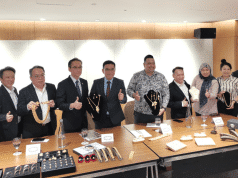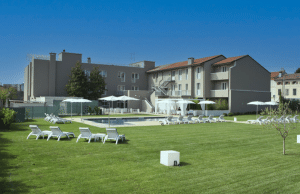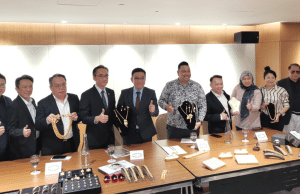INVEST TIME INTO A BACKGROUND CHECK
• If the destination is yet to be chosen, try to find out whether there are any benefits for conference organizers that you can use, for example any possible city subventions to apply for before the decision is made. Find out from the International Board what they expect from the destination.
• If the destination has already been decided upon, consult the International Board and/or local host regarding their expectations and how they believe the location will affect the conference. What is the purpose of having the conference in the given destination?
• If there is any previous history of other international conferences, look into the numbers, statistics and lessons learned during previous organization. This will greatly help to set goals for your conference and will give you vital insight regarding what to expect.
• Create a basic SWOT analysis of possible scenarios on how the location can influence the conference organization. This will help define the weak areas and allow you to prepare a strategy that can improve them.
PREPARE A DETAILED REQUEST FOR PROPOSAL
• Prepare qualified estimates of numbers and program requirements based on the previous background check.
• Make sure to describe all your requirements (rentals, AV equipment, catering, staff, obligatory contractual services etc.) in the RFP to benefit from correct budget estimates and avoid any unnecessary surprises in the future.
• If there is an existing RFP, make sure to update it based on recent developments and lessons learned.
• If the destination is yet to be chosen, it is especially important to have a good RFP composed as it helps to compare competitive offers and choose the best possible location/venue.

A RELIABLE LOCAL HOST IS HALF THE SUCCESS
• Local experience and perspective is always necessary and having a good relationship with the local host is a great benefit, especially when unprecedented situations appear.
• Clear details on how the local host wants to and can be involved, split responsibilities based on this agreement. This will help you to identify the possible need for a DMC in the location.
• If you decide to involve a local DMC, make sure to research previous references to identify the right partner to cooperate with. Work on clearly splitting the responsibilities between you and the DMC.
• Provide the RFP to the DMC and discuss any necessary alterations.
MAKE TIME FOR TARGETED MARKETING
• We have already mentioned making a SWOT analysis of the possible influence that the region can have on attendance, abstract submission etc. Having a good marketing strategy for conference promotion can help solve identified weak links.
• Should you decide to use social media and market the conference, bear in mind that everyone receives endless promotional messages these days. Make sure to target the right audience and try to focus on important messages only so that you don’t flood your recipients with hundreds of emails.

GET TO KNOW THE DESTINATION & SUPPLIERS
• Identify possible venues based on the composed RFP and research details about the location and venue while looking into previous experiences other organizers had with the possible venue etc. Provide the RFP to the best candidates.
• Invest into a site visit to discuss bids received based on the provided RFP, to verify details in the preliminary offers and clear all financial details. Personal site visits provide great added value.
• While on site visit, try to meet with all possible suppliers to establish a collaboration.
ADJUST THE PROGRAM
• Always think about what are the important topics in the region, what hot topics are good to incorporate into the program to boost local attendance and to engage local companies.
• It is always good to discuss with the local host as well as the international board the message that the conference should leave within the region and compose the program topics accordingly, especially if the conference is annual and competes with other similar conferences.
• Make sure to leave enough time for networking as it is one of the main goals of international conferences.














